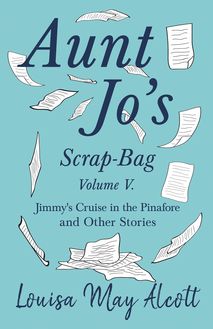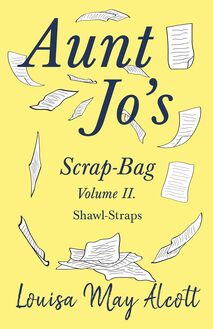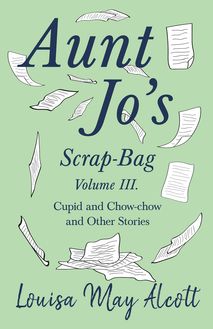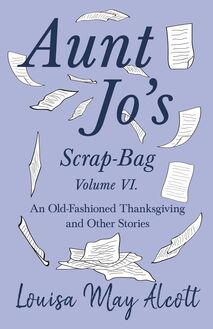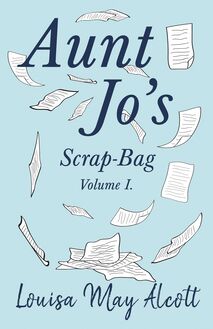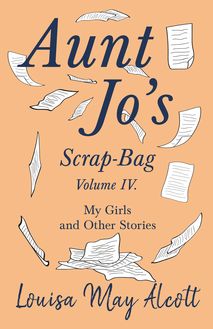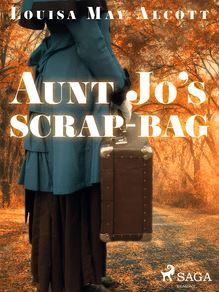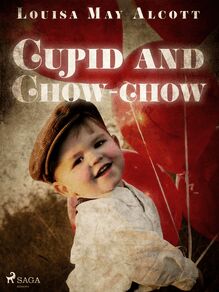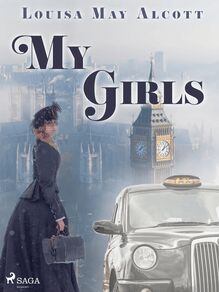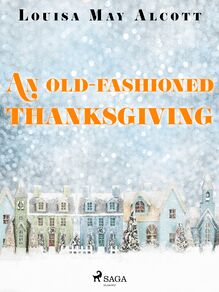-
 Univers
Univers
-
 Ebooks
Ebooks
-
 Livres audio
Livres audio
-
 Presse
Presse
-
 Podcasts
Podcasts
-
 BD
BD
-
 Documents
Documents
-
- Cours
- Révisions
- Ressources pédagogiques
- Sciences de l’éducation
- Manuels scolaires
- Langues
- Travaux de classe
- Annales de BEP
- Etudes supérieures
- Maternelle et primaire
- Fiches de lecture
- Orientation scolaire
- Méthodologie
- Corrigés de devoir
- Annales d’examens et concours
- Annales du bac
- Annales du brevet
- Rapports de stage
La lecture à portée de main
Vous pourrez modifier la taille du texte de cet ouvrage
Découvre YouScribe en t'inscrivant gratuitement
Je m'inscrisDécouvre YouScribe en t'inscrivant gratuitement
Je m'inscrisEn savoir plus
Vous pourrez modifier la taille du texte de cet ouvrage
En savoir plus

Description
Sujets
Informations
| Publié par | Read Books Ltd. |
| Date de parution | 11 octobre 2019 |
| Nombre de lectures | 0 |
| EAN13 | 9781528788625 |
| Langue | English |
| Poids de l'ouvrage | 2 Mo |
Informations légales : prix de location à la page 0,0500€. Cette information est donnée uniquement à titre indicatif conformément à la législation en vigueur.
Extrait
AUNT JO'S SCRAP-BAG
VOLUME IV. MY GIRLS, ETC
By
LOUISA MAY ALCOTT
This edition published by Read Books Ltd. Copyright © 2019 Read Books Ltd. This book is copyright and may not be
reproduced or copied in any way without
the express permission of the publisher in writing
British Library Cataloguing-in-Publication Data
A catalogue record for this book is available from the British Library
Contents
Louisa May Alcott
MY GIRLS.
LOST IN A LONDON FOG.
THE BOYS' JOKE, AND WHO GOT THE BEST OF IT.
ROSES AND FORGET-ME-NOTS.
OLD MAJOR.
WHAT THE GIRLS DID.
LITTLE NEIGHBORS.
MARJORIE'S THREE GIFTS.
PATTY'S PLACE.
THE AUTOBIOGRAPHY OF AN OMNIBUS.
RED TULIPS.
A HAPPY BIRTHDAY.
Louisa May Alcott
Louisa May Alcott was an American Novelist, best known for the classic Little Women (1868) and its sequels Little Men and Jo’s Boys. Alcott was born on 29 November, 1832 in Germantown, Pennsylvania, USA, and was raised by her transcendentalist parents. The family, despite their connections with the American intellectual elite, suffered severe financial hardship and Alcott frequently helped to support the household. In 1840, after several financial setbacks, most notably following the experimental school set up by Louisa May’s father, the family moved to a cottage along the Sudbury River in Massachusetts. In 1843, the family moved again to the Utopian Fruitlands Community , an agrarian commune, dedicated to natural living. They finally settled in a house they named Hillside in 1845. As a result of this peripatetic childhood, Alcott’s schooling was mainly received from her father, who was an incredibly strict disciplinarian, high thinker and advocate of plain living. This instilled a determination and strong work ethic in Alcott, who worked as a teacher, governess, seamstress and writer in her early years. As an adult, Alcott was a strong abolitionist and a feminist advocate, becoming the first woman to register to vote in Concord, in a school board election. During the civil war, Alcott worked as a nurse in the Union Hospital at Georgetown, D.C. She collected all her letters, often dryly humorous, in book entitled Hospital Sketches (1863); a work which brought Alcott critical acclaim. Following on from this success, Alcott wrote several novels under the pen name A. L. Barnard, most notably A Long Fatal Love Chase (1866) and A Modern Mephistopheles (1875). However, Little Women and its sequels were Alcott’s major successes; the first book dealt with the childhood of Meg, Jo, Beth and Amy; characters strongly based on Alcott’s childhood accompanied by her own three sisters. The sequel, Good Wives (1869) dealt with their progression into adulthood, whilst Little Men (1871) detailed Jo’s life at the school she founded alongside her husband. Jo’s Boys (1886) completed the ‘Family Saga’. The Character Jo was loosely based on Alcott’s own life, however unlike the heroine, Alcott never married, commenting that ‘I am more than half-persuaded that I am a man's soul put by some freak of nature into a woman's body ... because I have fallen in love with so many pretty girls and never once the least bit with any man.’ Alcott was firmly part of the Gilded Age , along with authors such as Elizabeth Stoddard and Rebecca Harding Davis, she addressed women’s issues in a modern and candid manner. Alcott continued to write until her death on 6 March, 1888. The cause of death is uncertain; she suffered chronic health problems, including vertigo and typhoid, the latter of which was treated with mercury. However recent analysis of her illnesses has suggested an autoimmune disease such as Lupus. She is buried in Sleepy Hollow Cemetery, Concord, Massachusetts, on a hillside known as Author’s Ridge.
"Promise that I may make the flowers you wear on your wedding-day," whispered Lizzie, kissing th e kind hand held out to he lp her rise
THE AUTOBIOGRAPHY OF AN OMNIBUS.
I.
MY GIRLS.
Once upon a time I wrote a little account of some of the agreeable boys I had known, whereupon the damsels reproached me with partiality, and begged me to write about them. I owned the soft impeachment, and promised that I would not forget them if I could find any thing worth recording.
That was six years ago, and since then I have been studying girls whenever I had an opportunity, and have been both pleased and surprised to see how much they are doing for themselves now that their day has come.
Poor girls always had my sympathy and respect, for necessity soon makes brave women of them if they have any strength or talent in them; but the well-to-do girls usually seemed to me like pretty butterflies, leading easy, aimless lives when the world was full of work which ought to be done.
Making a call in New York, I got a little lesson, which caused me to change my opinion, and further investigation proved that the rising generation was wide awake, and bound to use the new freedom well. Several young girls, handsomely dressed, were in the room, and I thought, of course, that they belonged to the butterfly species; but on asking one of them what she was about now school was over, I was much amazed to hear her reply, "I am reading law with my uncle." Another said, "I am studying medicine;" a third, "I devote myself to music," and the fourth was giving time, money, and heart to some of the best charities of the great city.
So my pretty butterflies proved to be industrious bees, making real honey, and I shook hands with sincere respect, though they did wear jaunty hats; my good opinion being much increased by the fact that not one was silly enough to ask for an autograph.
Since then I have talked with many girls, finding nearly all intent on some noble end, and as some of them have already won the battle, it may be cheering to those still in the thick of the fight, or just putting on their armor, to hear how these sisters prospered in their different ways.
Several of them are girls no longer; but as they are still unmarried, I like to call them by their old name, because they are so young at heart, and have so beautifully fulfilled the promise of their youth, not only by doing, but being excellent and admirable women.
A is one in whom I take especial pride. Well-born, pretty, and bright, she, after a year or two of society, felt the need of something more satisfactory, and, following her taste, decided to study medicine. Fortunately she had a father who did not think marriage the only thing a woman was created for, but was ready to help his daughter in the work she had chosen, merely desiring her to study as faithfully and thoroughly as a man, if she undertook the profession that she might be an honor to it. A was in earnest, and studied four years, visiting the hospitals of London, Paris, and Prussia; being able to command private lessons when the doors of public institutions were shut in her face because she was a woman. More study and work at home, and then she had the right to accept the post of resident physician in a hospital for women. Here she was so successful that her outside practice increased rapidly, and she left the hospital to devote herself to patients of all sorts, beloved and valued for the womanly sympathy and cheerfulness that went hand in hand with the physician's skill and courage.
When I see this woman, young still, yet so independent, successful, and contented, I am very proud of her; not only because she has her own house, with a little adopted daughter to make it home-like, her well-earned reputation, and a handsome income, but because she has so quietly and persistently carried out the plan of her life, undaunted by prejudice, hard work, or the solitary lot she chose. She may well be satisfied; for few women receive so much love and confidence, few mothers have so many children to care for, few physicians are more heartily welcomed and trusted, few men lead a freer, nobler life, than this happy woman, who lives for others and never thinks of any fame but that which is the best worth having, a place in the hearts of all who know her.
B is another of my successful girls; but her task has been a harder one than A's, because she was as poor as she was ambitious. B is an artist, loving beauty more than any thing else in the world; ready to go cold and hungry, shabby and lonely, if she can only see, study, and try to create the loveliness she worships. It was so even as a child; for flowers and fairies grew on her slate when she should have been doing sums, painted birds and butterflies perched on her book-covers, Flaxman's designs, and familiar faces appeared on the walls of her little room, and clay gods and goddesses were set upon the rough altar of her moulding board, to be toiled over and adored till they were smashed in the "divine despair" all true artists feel.
But winged things will fly sooner or later, and patient waiting, persistent effort, only give sweetness to the song and strength to the flight when the door of the cage opens at last. So, after years of hard work with pencil and crayon, plaster and clay, oil and water colors, the happy hour came for B when the dream of her life was realized; for one fine spring day, with a thousand dollars in her pocket and a little trunk holding more art materials than clothes, she sailed away, alone, but brave and beaming, for a year in England.
She knew now what she wanted and where to find it, and "a heavenly year" followed, though to many it would have seemed a very dull one. All day and every day but the seventh was spent in the National Gallery, copying Turner's pictures in oil and water colors. So busy, so happy, so wrapt up in delightsome work, that food and sleep seemed impertinencies, friends were forgotten, pleasuring had no
-
 Univers
Univers
-
 Ebooks
Ebooks
-
 Livres audio
Livres audio
-
 Presse
Presse
-
 Podcasts
Podcasts
-
 BD
BD
-
 Documents
Documents
-
Jeunesse
-
Littérature
-
Ressources professionnelles
-
Santé et bien-être
-
Savoirs
-
Education
-
Loisirs et hobbies
-
Art, musique et cinéma
-
Actualité et débat de société
-
Jeunesse
-
Littérature
-
Ressources professionnelles
-
Santé et bien-être
-
Savoirs
-
Education
-
Loisirs et hobbies
-
Art, musique et cinéma
-
Actualité et débat de société
-
Actualités
-
Lifestyle
-
Presse jeunesse
-
Presse professionnelle
-
Pratique
-
Presse sportive
-
Presse internationale
-
Culture & Médias
-
Action et Aventures
-
Science-fiction et Fantasy
-
Société
-
Jeunesse
-
Littérature
-
Ressources professionnelles
-
Santé et bien-être
-
Savoirs
-
Education
-
Loisirs et hobbies
-
Art, musique et cinéma
-
Actualité et débat de société
- Cours
- Révisions
- Ressources pédagogiques
- Sciences de l’éducation
- Manuels scolaires
- Langues
- Travaux de classe
- Annales de BEP
- Etudes supérieures
- Maternelle et primaire
- Fiches de lecture
- Orientation scolaire
- Méthodologie
- Corrigés de devoir
- Annales d’examens et concours
- Annales du bac
- Annales du brevet
- Rapports de stage
